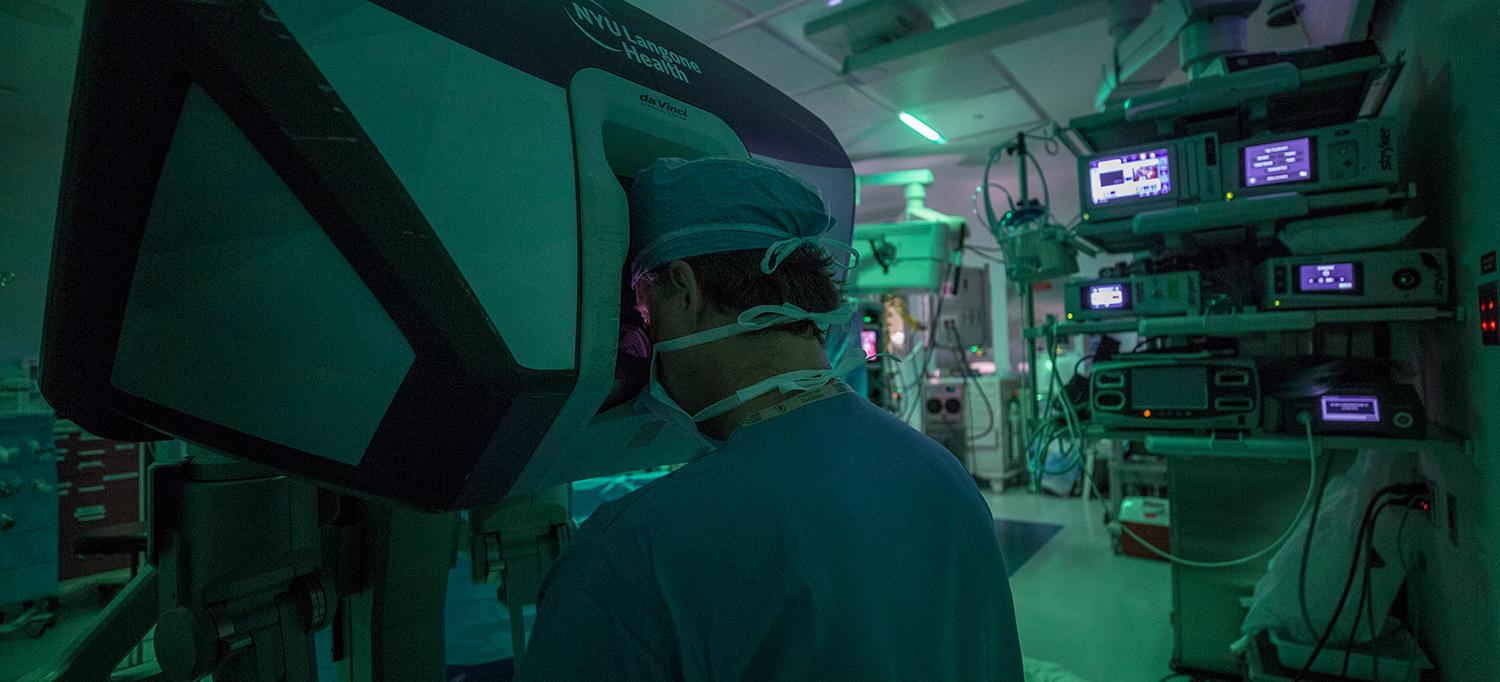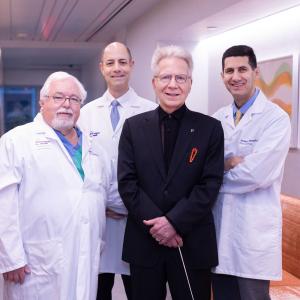
Cardiac surgeon Dr. Didier F. Loulmet discusses the precision and versatility of robotic cardiac tumor removal compared with other surgical methods.
Photo: NYU Langone Staff
While reducing trauma for patients, robotic-assisted cardiac tumor removal provides greater precision and versatility than other minimally invasive methods.
A Lower-Impact Alternative to Open Heart Surgery
Benign cardiac tumors such as myxomas and papillary fibroelastomas often go unnoticed until they are detected incidentally, through diagnostic imaging for other conditions. Due to the risk of embolization, hemodynamic complications, inflammatory reactions, or mechanical damage to cardiac valves, surgical removal is indicated even when these rare neoplasms are small and asymptomatic. Traditionally, resection has been performed via a median sternotomy, which provides generous exposure, but subjects patients to the rigors of an open heart procedure.
“These patients are often told they must have their chests cracked open to remove a 5-mm lesion that is causing them no symptoms,” observes Didier F. Loulmet, MD, associate professor in the Department of Cardiothoracic Surgery and director of robotic cardiac surgery and chief of cardiac surgery at NYU Langone’s Tisch Hospital. “That’s a high price to pay for such a tiny thing.”
Dr. Loulmet and his team offer a far less invasive alternative: robot-assisted surgery. This approach comprises three components—a control console, a three-dimensional (3D) visioning platform that provides 10× magnification, and an instrument cart with a camera arm and three robotic operating arms. Seated at the console and guided by endoscopy, the surgeon manipulates miniaturized tools that are inserted into ports through tiny incisions. “Wrist-like” instrument articulation allows a range of motion exceeding that of the human hand, while precision is enhanced through tremor suppression and motion scaling.
“Our work is part of a long tradition of innovative approaches to cardiac surgery at NYU Langone.”—Didier F. Loulmet, MD
Robotic cardiac surgery is associated with less bleeding, less pain, reduced need for narcotic analgesics, and shorter recovery times than open procedures. Extubation typically occurs in the operating room rather than the intensive care unit (ICU), and hospital length-of-stay is reduced from one week to two or three days. Most patients are able to resume normal activities within weeks rather than months.
Improved Dexterity and Visualization
Unlike other minimally invasive approaches, such as the mini-thoracotomy and mini-sternotomy, robotic surgery can be employed even in the most challenging cases.
“The advantages of this technique lie in enhanced dexterity and visualization,” Dr. Loulmet explains. “If a tumor is situated deep in the left ventricle, for example, or you need to repair a hole that your excision has created in the interatrial septum, those situations would be very difficult to navigate with conventional minimally invasive techniques. With robotics, there is no limit to access.”
Magnified, 3D visualization also facilitates complete excision of even the smallest tumors. “It’s like operating with a pathology microscope,” Dr. Loulmet says. In addition, improved dexterity minimizes the need for conversions to open surgery.
The Value of Experience
NYU Langone’s Robotic Surgery Center is internationally known for its pioneering cardiac program. Dr. Loulmet was part of the 1998 team that performed the world’s first robotic mitral valve repair and coronary artery bypass grafting operations in France. Since joining NYU Langone in 2009, he has led more than 1,000 robotic cardiac procedures, in addition to performing thousands of surgeries using other techniques.
The center is one of just a handful nationwide that offers robot-assisted surgery for cardiac tumors, and the only practice in the New York metropolitan area with extensive experience in this modality. All such procedures are performed using the latest-generation da Vinci® Xi, widely regarded as the most advanced robotic surgical system available.
“Our work is part of a long tradition of innovative approaches to cardiac surgery at NYU Langone,” Dr. Loulmet notes. “Robotic surgery has become our standard approach to cardiac tumor removal, with excellent results. I believe it will someday become the standard everywhere.”

